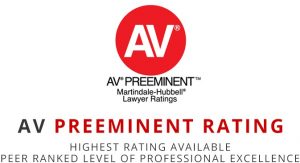Upholding ADA Rights: Protecting Individuals with Disabilities
Welcome to Richard Adams Law Firm, dedicated to defending the rights of individuals with disabilities under the Americans with Disabilities Act (ADA). The ADA is a critical piece of legislation designed to ensure equal opportunities and accessibility for people with disabilities. Unfortunately, many businesses underestimate the importance of the ADA, leading to discrimination and barriers for disabled individuals.Understanding the Americans with Disabilities Act (ADA):
The Americans with Disabilities Act (ADA), enacted in 1990, is a federal law aimed at prohibiting discrimination against individuals with disabilities. It was designed to eliminate barriers and ensure equal access to employment, public services, transportation, and accommodations for people with disabilities. The ADA promotes inclusivity and equal opportunities for all, regardless of physical or mental impairments.The Importance of Taking the ADA Act Seriously:
Regrettably, many businesses fail to prioritize compliance with the ADA. This negligence not only infringes upon the rights of individuals with disabilities but also hampers their ability to fully participate in society. So, it is crucial for businesses to take the ADA Act seriously for several reasons:1. Legal Obligation:
Businesses are legally obligated to comply with the ADA and provide reasonable accommodations to individuals with disabilities.2. Access to a Larger Customer Base:
By ensuring accessibility, businesses tap into a wider customer base, fostering loyalty and expanding their reach.3. Reputation and Goodwill:
Embracing inclusivity and accessibility enhances a business’s reputation, leading to positive brand recognition and customer trust.Common Impairments and Disabilities Protected Under the ADA:
The ADA protects individuals with various impairments and disabilities, including but not limited to:- Physical disabilities
- Sensory impairments (hearing or vision loss)
- Intellectual or developmental disabilities
- Mental health conditions
- Chronic illnesses
- Mobility impairments
ADA Violations in South Florida and Key Areas:
ADA violations can occur in various domains, and South Florida is no exception. Several factors constitute ADA violations in areas such as housing, transportation, employment, and public accommodations. Some examples of ADA violations in each area include:1. Housing:
- Lack of accessible entrances or common areas
- Inadequate modifications to accommodate disabilities
- Failure to provide reasonable accommodations for tenants
2. Transportation:
- Inaccessible public transportation vehicles or stations
- Failure to provide accessible transportation options or assistance
- Insufficient accommodations for individuals with disabilities
3. Employment:
- Refusal to provide reasonable workplace accommodations
- Discrimination during the hiring or promotion process
- Inaccessible facilities or workspaces
4. Public Accommodation:
- Inaccessible entrances, paths, or restrooms
- Absence of accommodations for individuals with disabilities
- Discrimination in the provision of services or denial of access
- Websites that are not designed with accessibility (Website Content Accessibility Guidelines version 2.1 Level AA)




